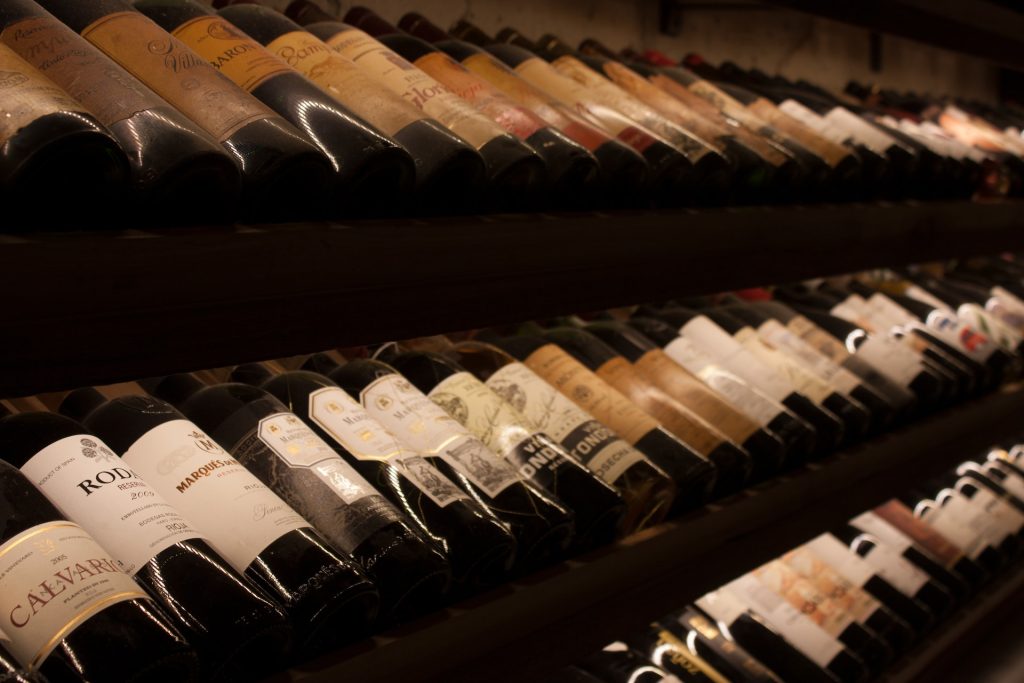
Figuring out the best wine storage solution can be confusing. There are wine cellars and wine cabinets, but which one is better? Having a wine cellar is kind of the quintessential notch in the belt for a wine drinker. While it serves a purpose, it is also a conversation piece and of course takes up space in a room, under the stairs, or even in an odd nook in the house that would otherwise be dedicated to a piece of furniture that you looked for a long time just to fit that wonky space to make it appear fluid.
Sometimes a wine cabinet like the units EXPO SRL offers is a better option for space, design, and of course budget.
In this article, we will go over the top benefits of a wine cellar vs. a wine cabinet to help you make the best decision.
Wine cellars provide a lot of benefits when it comes to “filling a space with wine”. Perhaps I should explain. Often times when a client contacts us to build a wine cellar, they are not sure of how many wine bottles they want to store, cases of wine they want to store, and magnum-size bottles they want to store. The conversation usually evolves to a design conversation regarding house style and of course what type of racks and look they want for the new wine cellar. The dimensions of the space for the “dedication” are needed so the real calculations can begin.
If the walls are concrete (wine cellar in the basement or house in the Caribbean) the space gets “robbed” of additional square footage due to insulating the space. As the conversation progresses, we of course have to discern where the cooling unit will be located, electrical source is derived from, and last but certainly not least if there is a plumbing solution available.
The next step of course is, if they are a “do it yourself wine cellar builder” we have to verify the R factor of what insulation is being used, and what glass or door glass is being used for the door of the wine cellar. At this point, we can do a load test on the cooling calculator and provide options regarding what cooling system will be optimal for their wine storage cellar.
Once all of the above has been done, the shop drawings for the cabinets, the HVAC, and all other details have to be generated so the build of the wine cellar is effectively a plug-and-play project. The sourcing of each category can take a while for a do-it-yourself wine cellar builder unless they are handy with building cabinets, have access to electricians, plumbers, and of course a general contractor that has the space for building out the project. The labor portion has been a factor the past couple of years to say the very least.
We recommend having your contractors lined up before the first nail is placed. A timeline for the execution of each phase is of course very helpful when it comes to each respective contractor and their respective discipline. It is essential to time these in the proper order so that some of the work does not have to be disassembled and reassembled or effectively duplicated the work.
A wine cabinet effectively is a wine refrigerator with a much better look and of course some other key benefits. An average wine cellar holds three hundred to four hundred bottles of wine. That same wine cellar also has one central unit that manages the cooling of all of the wine bottles. What happens if that unit breaks? Well…the entire collection effectively is subject to temperature change (which may bring about its own issues) and of course, sweating of the bottles if it cools too fast. The sweating will cause the labels to ruffle.
We have all been to that one restaurant where the bottle has a ruffled label and it sits in our mind as to whether the wine will be good or not as it is clear it has gone through some drastic temperature changes.
The same three hundred to four hundred bottles of wine stored in an EXPO SRL unit (large units store 120 bottles) could be separated into three different wine cabinets and effectively hedges against one main cooling system breaking. The wine rack designs are flexible inside the units themselves and there are more than twenty-five color options for the frame and of course, led lights for the wine cabinets themselves.
As you can see there are many things to consider when looking for a wine storage solution in your home, restaurant, or even hotel. Time, labor, bottle storage count, aesthetic impact, and budget all play a key role in the decision-making process. We invite you to take all of these factors into consideration when it comes to the planning and preparation of your decision.

In the vibrant city of Los Angeles, CA, numerous wine enthusiasts are actively exploring optimal wine storage solutions. Fueled by a deep appreciation for fine

In Los Altos Hills, CA, the growing demand for tailor-made wine cellars has spurred advancements in wine refrigeration expertise. Many wine enthusiasts aspire to acquire